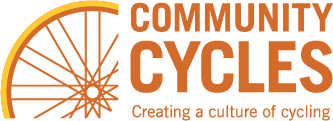The Current Problems
Much of Boulder was built with the assumption that the automobile would always be the dominant mode of transport, a design choice with far-ranging and troublesome consequences as our population has grown, housing prices have increased, and the menace of climate change has come into focus.
But automobiles kill and seriously injure many people. The numbers rival deaths and injuries from war, guns, and diseases. Traffic congestion persists despite adding travel lanes, slip lanes, signals synchronized for throughput, and high quality concrete. Car dependency contributes to worse physical and mental health. Cars are necessary because we have inadequate alternatives, but cars are getting more expensive.
Environment: Automobiles and trucks are the primary source of the gases that are causing global warming. Cars facilitate the urban sprawl that is destroying so much wildlife habitat.
Safety
Despite a recent, post-pandemic drop in fatalities and serious injuries for those traveling by automobile, the death and serious injury remains high for those traveling by car and has worsened for those traveling on foot or by bike. In recent years fatalities have decreased for automobile drivers, but they have increased for pedestrians and bicyclists.
Traffic
While traffic volumes have not reached their pre-pandemic levels, probably owing to more people working from home, volumes remain high enough during peak hours of travel for there to be rush-hour congestion on many arterials in the community. More than half of this traffic is the result of people commuting into Boulder.
Wildlife
Our world faces a crisis in the loss of habitat for its non-human species. Much of that is caused by our increasing occupation of land by automobile-induced sprawl.
Greenhouse Gas Emissions and Air Quality
Emissions from transportation, principally from automobiles, remains more than a quarter of the greenhouse gas emissions from Boulder, contributing substantially to our worsening air quality.
Most vehicle miles traveled are accrued on trips within three miles of home, and, for automobiles with an internal combustion engine, these trips contribute disproportionately to greenhouse gas emissions and fuel expenses because the engine spends most of its operating time at temperatures well below those needed to achieve anything like the advertised average fuel economy.
Expense
The annual cost of car ownership in Colorado is now nearly $11,000 per year and growing at a rate nearly double the rate of growth in income, meaning that automobile dependence is making Coloradans poorer by the year.
Wellbeing
Car-dependent lifestyles contribute to worse physical and mental health. Cars isolate us from our fellow travelers, encourage us to spread out across distances that discourage interaction, and stress us out as we grind our way through traffic. Social isolation is particularly severe for children, the elderly, and the economically disadvantaged. Car dependence also correlates with obesity, diabetes, and heart disease. Alternative modes of transportation involve healthful exercise. In other words, the large distances from home to work, school, play, and shopping make us drive more and get less exercise compared to earlier community patterns. Watch a video here.
Parking
Parking in high-demand areas of Boulder is increasingly expensive at peak hours, and parking occupies space that could be used for amenities that are of higher value to the community.
Resources
Report a Maintenance Problem, City of Boulder
City of Boulder: To report a street maintenance related problem (potholes on the bike path, paths blocked by snow), complete the form and provide your contact information.
Report County Road Service Issue
Boulder County: To report a street maintenance related problem (potholes on the bike path, paths blocked by snow), complete the form and provide your contact information.
Report an Aggressive Driver
If you find yourself in a situation with an aggressive driver, remember you can dial *CSP (*277), free of charge. Report “real time” aggressive driving behavior to the Colorado State Patrol.
Report a Close Call – Inquire Boulder
Have you had a close call with a bicycle, pedestrian or motorist? This data is important and used in analysis of the safety of our streets.
Bike Theft Prevention & Registration
Learn tips and tricks for preventing your bicycle from being stolen, like registering your bike on Bike Index and knowing which lock to use how to properly use it.
Join the Advocacy Committee
We aspire to help Boulder become a dynamic and sustainable city that maximizes the safety, comfort, and convenience of its residents and prioritizes long-term environmental stewardship.
